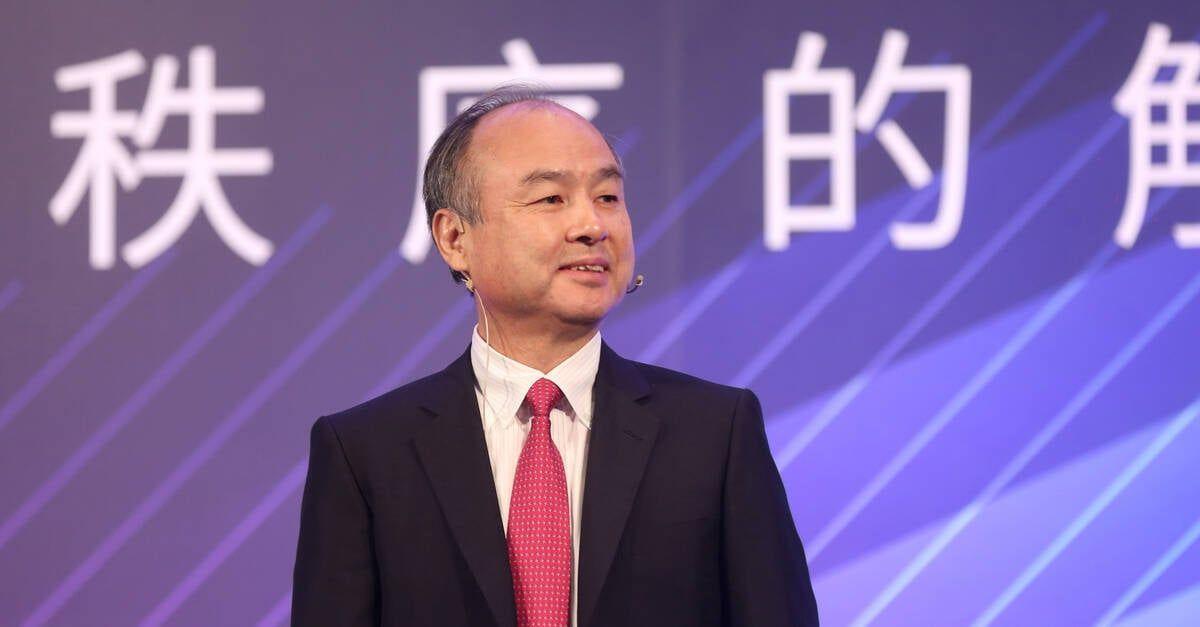SoftBank Explores Project Financing for $500 Billion AI Venture with OpenAI
2 Sources
2 Sources
[1]
SoftBank Explores Debt-Heavy Financing for $500 Billion AI Push
A few weeks ago, SoftBank Group Corp. founder Masayoshi Son stood alongside US President Donald Trump to unveil the Stargate Project, an artificial intelligence venture with OpenAI that could cost $500 billion or more. Now Son is figuring out how to pay for it. The Japanese billionaire is looking at a technique called project financing that is sometimes linked with oil and gas projects, according to people familiar with the matter. The strategy is used to build capital-intensive, large-scale infrastructure projects like the Trans-Alaskan pipeline -- and has the big advantages that it typically requires less money upfront from anchor investors and can resort to long-term financing based on the project's expected cash flows.
[2]
SoftBank explores debt-heavy financing for $500 billion AI push
A few weeks ago, SoftBank Group founder Masayoshi Son stood alongside U.S. President Donald Trump to unveil the Stargate Project, an artificial intelligence venture with OpenAI that could cost $500 billion (¥75.9 trillion) or more. Now, Son is figuring out how to pay for it. The Japanese billionaire is looking at a technique called project financing that is sometimes linked with oil and gas projects, according to people familiar with the matter. The strategy is used to build capital-intensive, large-scale infrastructure projects like the Trans-Alaskan pipeline -- and has the big advantages that it typically requires less money upfront from anchor investors and can resort to long-term financing based on the project's expected cash flows. SoftBank is exploring ways to incorporate some aspects of that funding structure in Stargate, which would span multiple datacenter and power-generation projects, said the people, asking not to be identified discussing private information. One scenario under discussion would have SoftBank, OpenAI and partners Oracle and Abu Dhabi's MGX contribute in equity about 10% of the overall cost and tap debt markets for much of the rest, said two of the people.
Share
Share
Copy Link
SoftBank's Masayoshi Son is considering project financing to fund the ambitious $500 billion Stargate Project, an AI venture with OpenAI. This financing strategy could minimize upfront costs and leverage long-term cash flows.

SoftBank's Ambitious $500 Billion AI Project
SoftBank Group Corp., led by founder Masayoshi Son, is exploring innovative financing strategies for its recently announced Stargate Project, a massive artificial intelligence venture in collaboration with OpenAI. The project, unveiled alongside US President Donald Trump, is estimated to cost a staggering $500 billion or more
1
2
.Project Financing: A Novel Approach for AI Infrastructure
Son is considering the use of project financing, a technique typically associated with large-scale infrastructure projects in the oil and gas industry. This financing method is known for its ability to fund capital-intensive ventures like the Trans-Alaskan pipeline
1
2
.The key advantages of project financing include:
- Lower upfront costs for anchor investors
- Access to long-term financing based on projected cash flows
Potential Financing Structure
SoftBank is exploring ways to adapt this funding structure for the Stargate Project, which will encompass multiple datacenter and power-generation projects. One scenario under consideration involves:
- Equity contribution: SoftBank, OpenAI, and partners Oracle and Abu Dhabi's MGX would contribute about 10% of the overall cost in equity.
- Debt financing: The remaining 90% would be sourced from debt markets
2
.
This approach could significantly reduce the initial capital requirements for the participating companies while leveraging the project's future revenue potential.
Related Stories
Implications for the AI Industry
The Stargate Project represents a monumental investment in AI infrastructure, potentially reshaping the competitive landscape. By utilizing project financing, SoftBank and its partners aim to mitigate financial risks while pursuing groundbreaking advancements in artificial intelligence.
Global Collaboration and Impact
The involvement of international partners and the US government underscores the global significance of this AI initiative. As the project progresses, it may have far-reaching implications for:
- Technological innovation in AI
- International cooperation in advanced technologies
- Economic growth and job creation in the tech sector
As SoftBank and its partners navigate the complex financing landscape for this unprecedented AI venture, the tech industry and financial markets will be watching closely to see how this ambitious project unfolds.
References
Summarized by
Navi
Related Stories
SoftBank Seeks $16 Billion Loan to Fuel AI Investments, Including Stargate and OpenAI
02 Mar 2025•Business and Economy

SoftBank, OpenAI, and Partners Unveil $500 Billion 'Stargate' AI Infrastructure Project
22 Jan 2025•Business and Economy

SoftBank Seeks $16.5 Billion Loan for Massive AI Investments, Including Potential OpenAI Funding
01 Apr 2025•Business and Economy

Recent Highlights
1
Pentagon threatens to cut Anthropic's $200M contract over AI safety restrictions in military ops
Policy and Regulation

2
ByteDance's Seedance 2.0 AI video generator triggers copyright infringement battle with Hollywood
Policy and Regulation

3
OpenAI closes in on $100 billion funding round with $850 billion valuation as spending plans shift
Business and Economy





